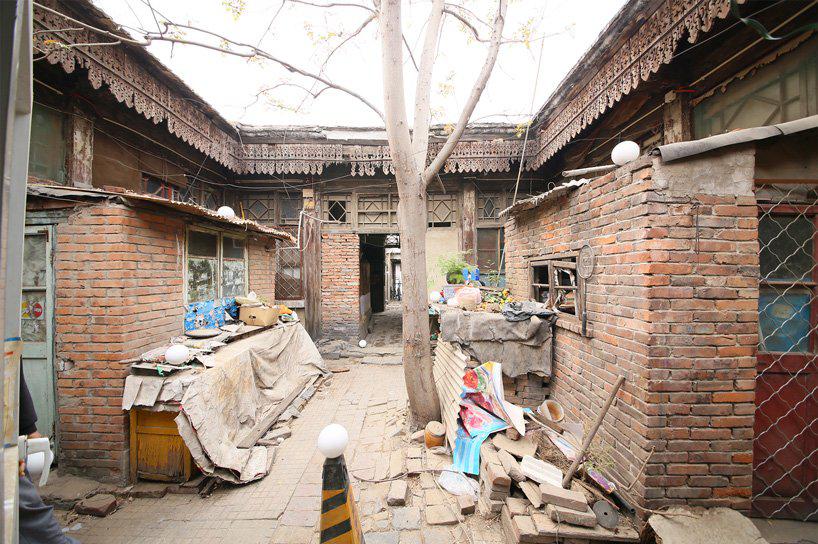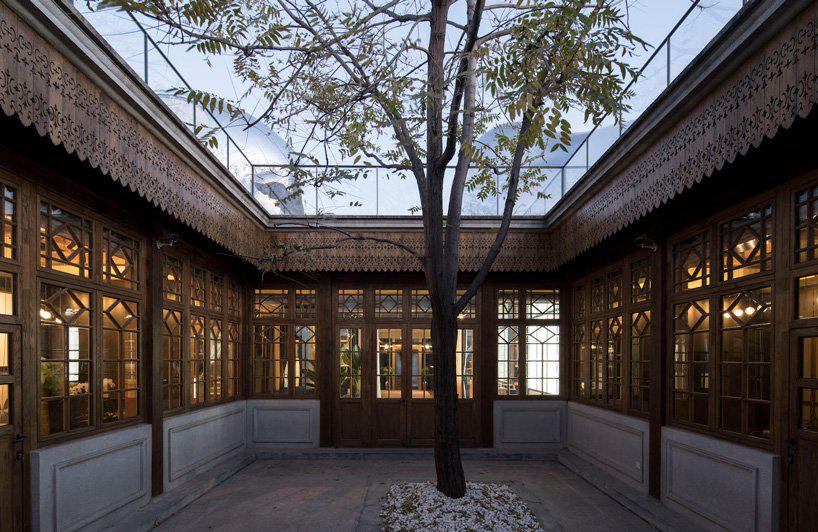MAD architects builds hutong bubble into fabric of beijing neighborhood
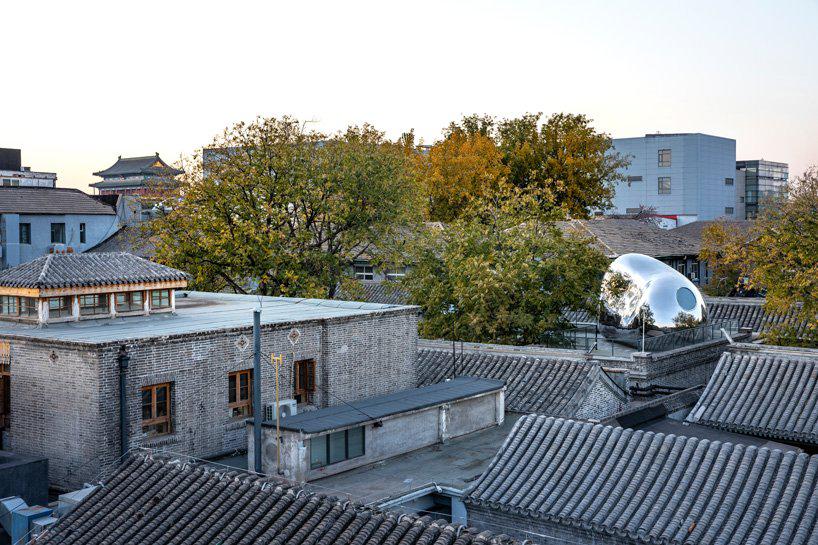
DESIGNBOOM_a decade after the first hutong bubble was realized in beibingmasi hutong, MAD architects unveils the ‘hutong bubble 218’, emerging from one of the chinese capital’s old neighborhoods. the intervention is part of a restoration of a 305 square meter courtyard house that dates back to the qing dynasty, which the studio has now completed.
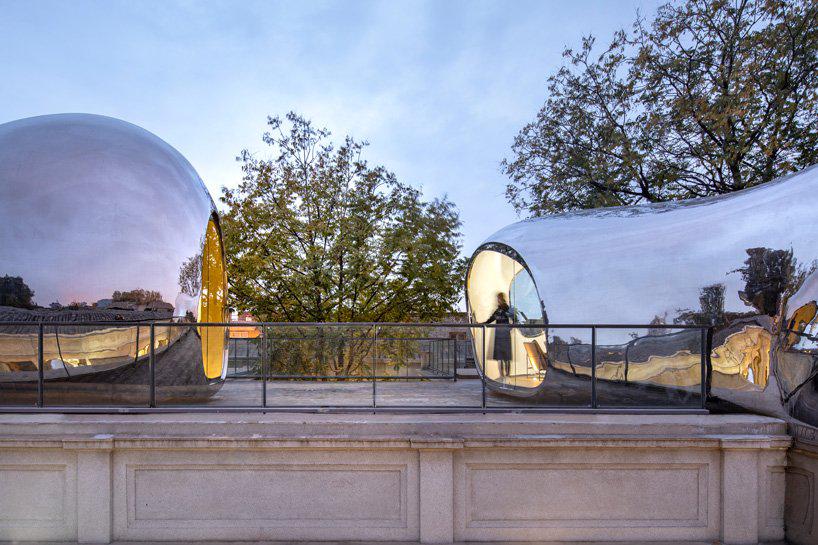
‘hutong bubble 218’ is a continuation of MAD’s exploration into urban renovations as a means of revitalizing the chinese capital. MAD architects first proposed ideas for the future of beijing at the 2006 venice architecture biennale under the title ‘beijing 2050’.
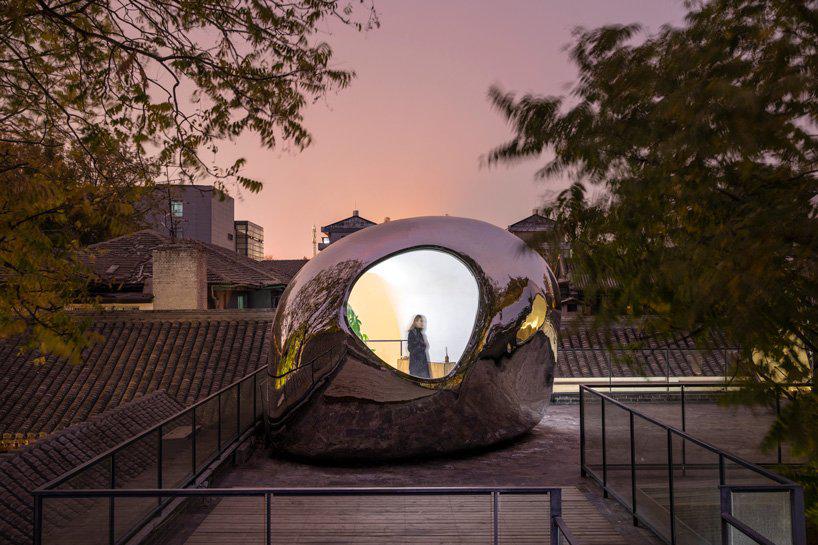
the studio imagined different scenarios for the city, including the ‘future of hutongs’ and a network of metallic bubbles that could provide new spaces and programs in these adverse neighborhoods. inserted into the city’s existing urban fabric, they were envisioned to attract new people, activities and resources back to these ageing and neglected communities.
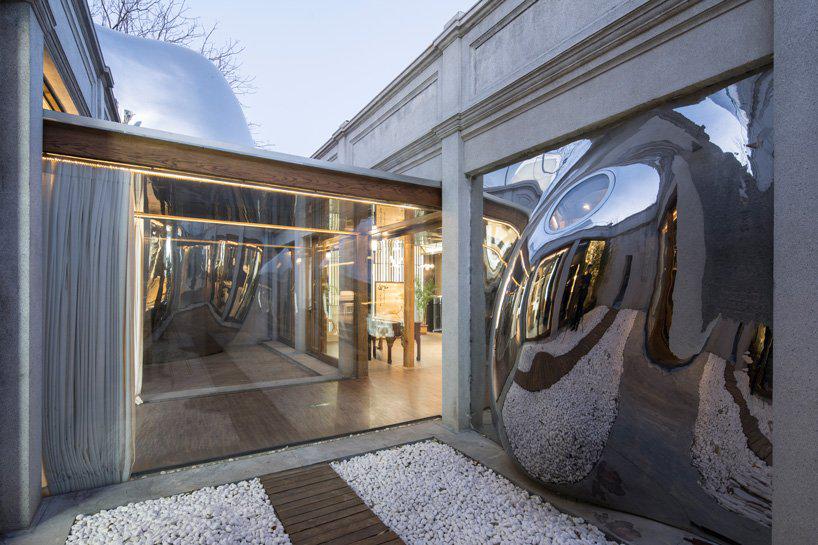
in 2014, MAD engaged in the old city renewal research program, an initiative inviting architects to renovate several sites in beijing’s historic center. the program was co-sponsored by tianjie group, the beijing center for the arts and beijing architectural design and research institute.
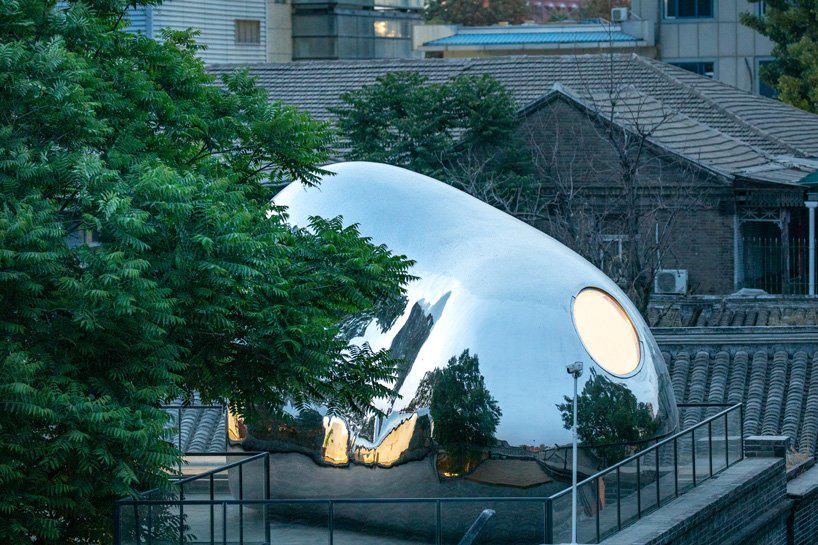
for the project, MAD focused on four principles: historic preservation, urban regeneration, re-energizing the community spirit and small-scale intervention. the resulting scheme not only introduces several sculptural ‘bubbles’ but also conserves and restores the site in which they have been installed.
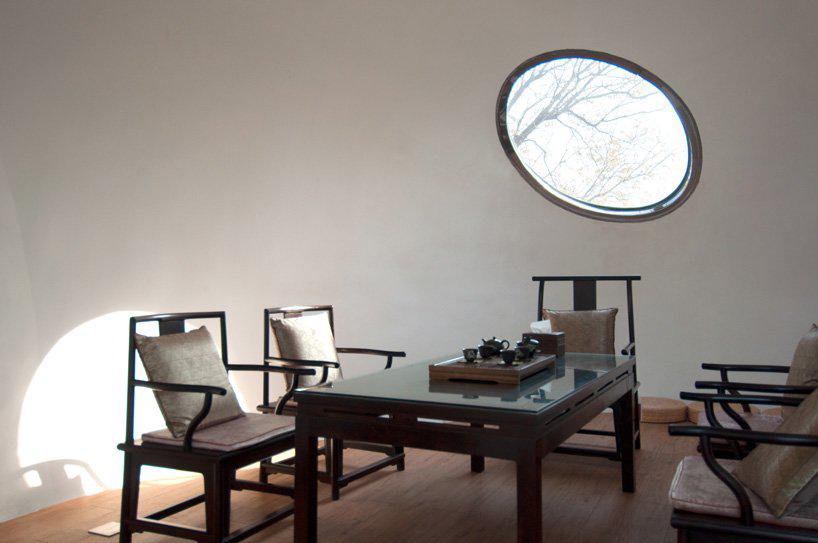
‘hutong bubble 218’ is in the qianmen east area, close to the forbidden city and tian’anmen square, embedding itself into the neighborhood just off xidamochang alley. the building was erected in the latter part of the qing dynasty and covers an area of 469 square meters.
it originally served as the city’s first international hospital for over 100 years, before being converted into a residence inhabiting more than 20 families. over time, the courtyard underwent restructuring on multiple occasions. residents also created their own make-shift additions, eventually leading to structural degradation and most of the households moving out.
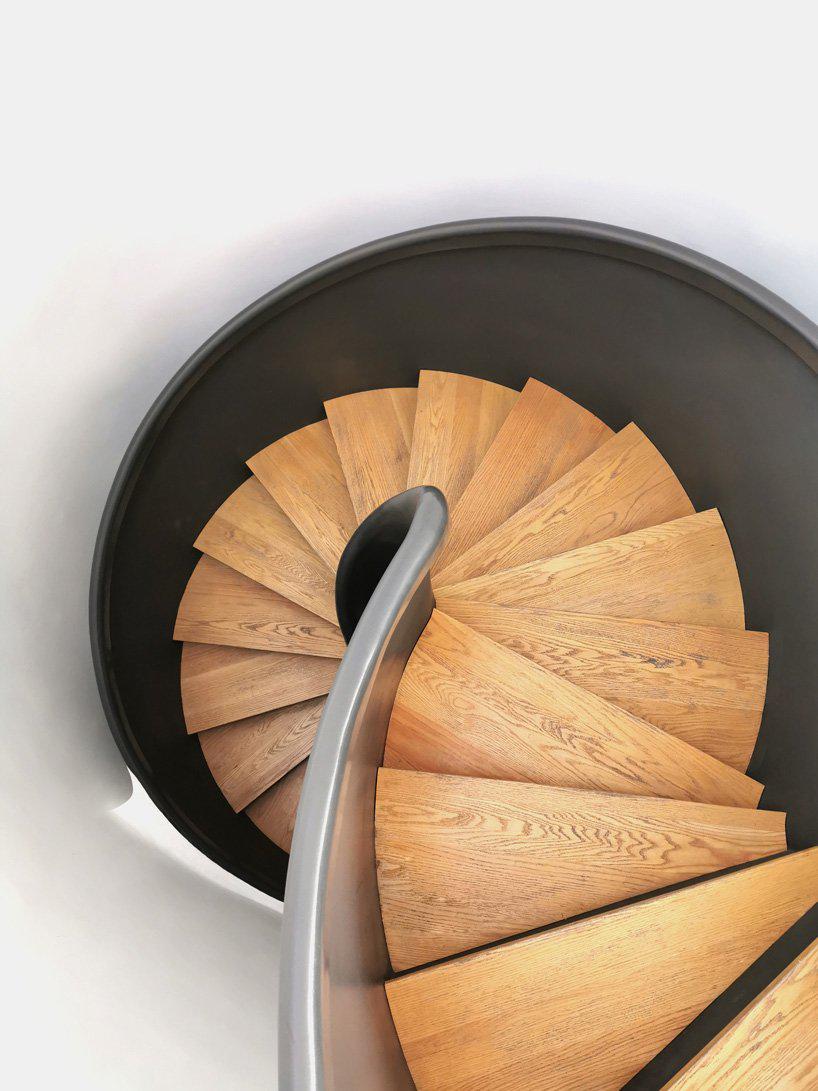
the temperament of the old beijing courtyard is retained through the use of gray bricks, which have come to define hutong building constructions. the glazing along the street front has been replaced with single transparent glass, maximizing the amount of natural light that floods the interior.
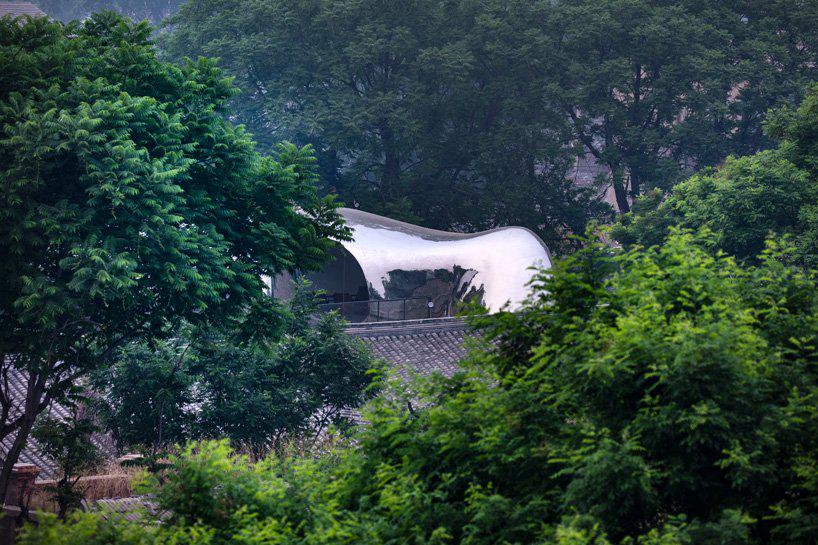
the inner courtyard was restored following the original layout of the space. the wood filigree panels that lined the inner courtyard have been stripped of their stains and returned to their original luster, with replacement sections reproduced with the same size and motif. the pattern and arrangement of the wooden door and window frames have also been retained, forming an elevation that is open.
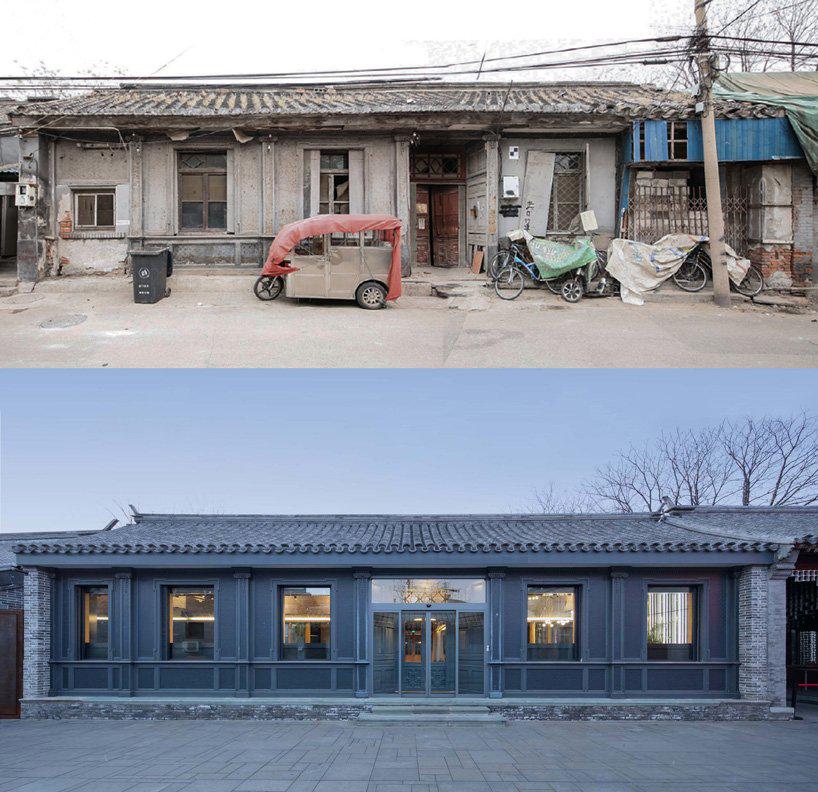
a staircase connects the first and second floors puncturing through the roof landscape and emerging onto the terrace. it functions as an independent meeting room/shared workspace, and flows over the edge into the front courtyard.
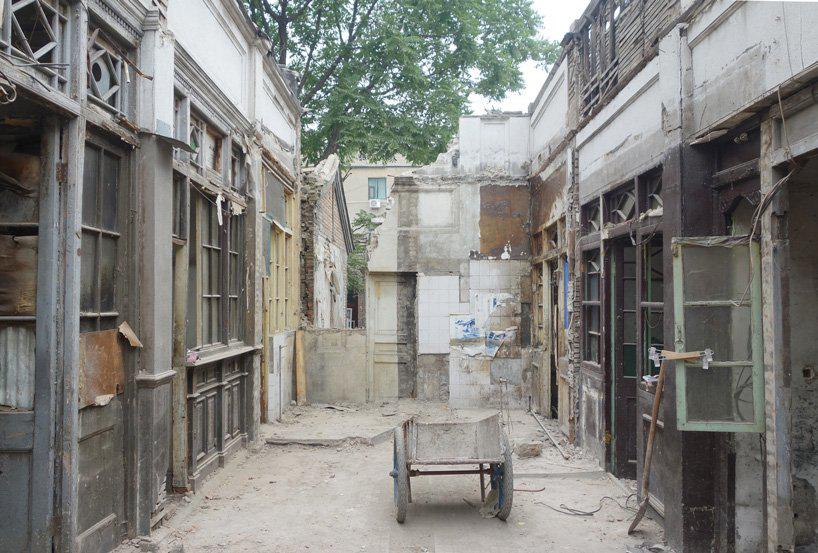
each hutong bubble appears as if it has landed on the roof, its smooth mirrored surfaces reflecting the ancient buildings that surround it. seemingly blending into the environment their presence is at once unfamiliar and complementary.
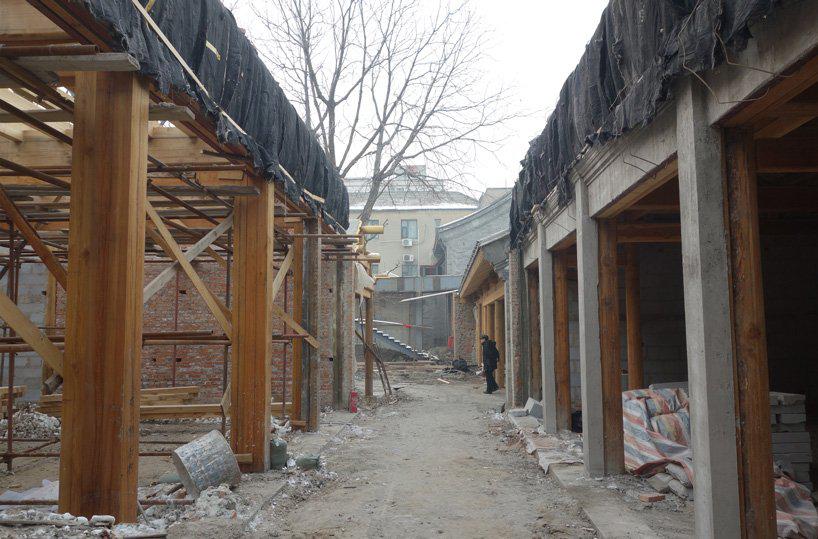
the renovation demonstrates how small-scale, artistic interventions can provide new spaces and programs for these adverse areas, creating a dialogue between the old and the new: ‘this is a micro-utopian ideal,’ explains ma yansong, founder and principal partner at MAD. ‘I hope that these bubbles will serve as vital newborn cells, giving the traditional hutong new life, and revitalizing the community.’
